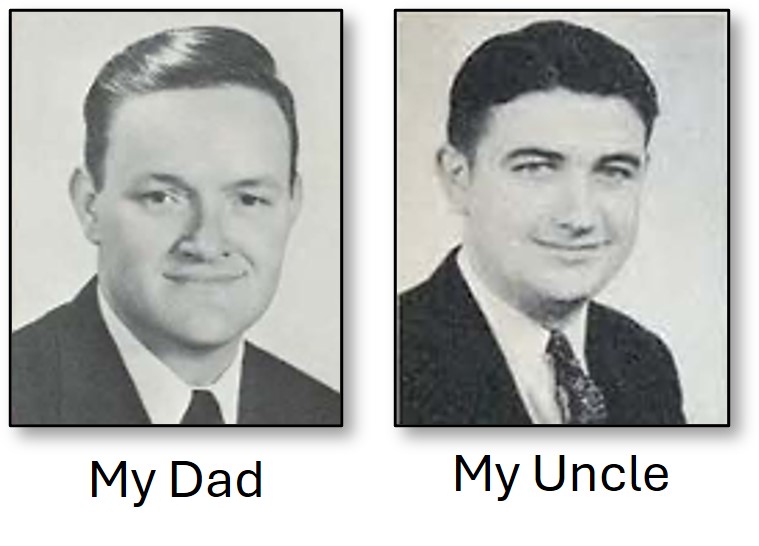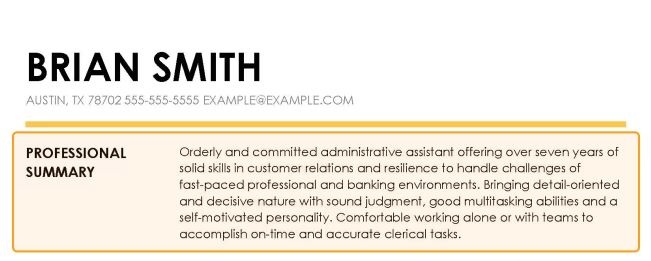
The difficulty of talking about transitioning out of ministry.

I grew up in a ministry‑focused family. My father and my uncle were both ordained ministers, and I grew up under the shadow of their influence. For them—and for the whole generation of old‑school pastors I knew growing up—a call to ministry was a high and holy calling from God: a defining moment and a life‑changing reality. “Here am I; send me” was not just for Isaiah. This was the expected response of all who pursued full‑time ministry and service to the Lord. Ministry was not a vocation—it was sacred… and permanent.
In light of this, writing about transitioning out of ministry can feel strangely unpastoral, unbiblical, and even ungodly. I get it. Transitions out of ministry have traditionally been thought to result from an unredeemable moral failure on the part of the pastor—or, more recently, from a spiritual deconstruction that reach a tipping point. While disastrous, these have been reluctantly seen as the only valid reasons for leaving pastoral ministry. Which makes sense—who would want an adulterer or an apostate in the pulpit?
START HERE
Transitions out of ministry come with their own unique challenges, opportunities, and yes, heartaches. While the factors that brought you to this point in your ministry are outside the scope of Align’s mission, there are some things you need to know.
-
- First and foremost, recognize that this is a decision between you, the Lord, and your family.
-
- Also, think of this website as the Planet Fitness of ministry transitions—it, too, is a judgment-free zone.
-
- Finally, I am not going to try to talk you out of or into anything. My goal is to provide you with information that will help you make well-informed ministry transition decisions in the career planning space.
CHECK POINT: If this transition is causing significant anxiety, fear, and uncertainty, I strongly suggest reaching out to a trusted ministry colleague, counselor, or denominational leader for additional support.
My story transitioning from ministry to "secular" employment
Let me start with a predictable reaction:
“Won’t talking about transitioning out of ministry encourage pastors to do that very thing?”
Probably not.
Life is filled with uncomfortable topics, and the same is true of pastoral ministry. Pastors are going to continue to transition in and out of ministry. Ignoring it won’t make it go away! Regardless of the reason, it behooves the Church to provide some level of support for our brothers and sisters as they face this challenging season of life and ministry.
My Transitions Out of Ministry
I experienced two transitions out of pastoral ministry. Both required entering the secular job market.
Transition: 1988
My first transition out of ministry was in 1988. After eight years of service, we stepped out of the pastorate to enable my wife to complete her bachelor’s degree. After her graduation, I enrolled part-time in seminary and worked a full-time job in a call center for a computer maintenance company in Chanhassen, MN. I was out of full-time ministry for five years.
Transition: 2011
In late 2011, I stepped out of ministry again. Thinking it would be just a brief intermission, I took a placeholder job working as an employment readiness trainer and later as an operations supervisor for a social service agency in Pewaukee, WI. After that job, I worked in career planning for a behavioral health hospital located in Oconomowoc, WI. My “brief intermission” out of full-time ministry lasted almost 13 years.
Resume foundations: identifying transferrable skills
Not to sound too dramatic, but the make or break element when drafting a transitioning-from-ministry-to- secular-employment-resume is your ability to identify and communicate your transferable skills and competencies.
First, we need to define “transferrable skill/competency.”
A “transferable skill” is a skill or competency that can be applied across different jobs, industries, or roles.
Think of skills and competencies this way:
- A skill is what you can do, a technical ability.
- A competency is how you use that skill and the situational outcomes that are achieved.

David, while still a shepherd, provides an example of this in 1 Samuel 17:36
In explaining to King Saul how he would be able to take down Goliath, David leaned on the skills developed as a shepherd. He made a connection between the skills that were required to kill the bear and the lion with the skills that would be required vanquish Goliath.
“Your servant has killed both the lion and the bear; and this uncircumcised Philistine will be like one of them…”
Confident of his skills fighting against lions and bears, David felt competent to face Goliath.
What does this look like on a resume?
The resume is where you connect your skills with the competencies that your new job will require.
Remember, a skill is a technical ability that you have, while a competency is how you use that skill. David had a certain skill (probably with a club of some sort) when it came to fighting ferocious animals. How he would apply that skill in the future would look different, but it would all come from the same set of core competencies, such as:
- Courage
- Discernment
- Situational awareness
- Protective instincts
- Loyalty
- Action under pressure
Even if David never used his “club the lion and bear” skills again, these competencies would be drawn on throughout his life.
Please do not miss this point!
Organizations are looking for employees who can apply their skills and competencies to the requirements of the open positions they post. Your job is to help them see that the skills and competencies you developed in ministry can do just that. Let me say that again, it is your job to help them see that connection. It is not their job to try and figure it out.
Below are samples of statements you would find on a typical ministry resume, along with competencies associated with them. The “Secular Resume” column contains a rewording of the statement using the same competencies but applied to a secular work environment.
Ministry Resume
Competencies
Secular Resume
Implemented a small group discipleship program which emphasized habits of prayer, Bible study and outreach which evolved into a monthly ministry project in the community.
Training
Team Development
Community Awareness
Implemented small group training program that strengthened participant’s core competencies of personal growth, reflection, and community involvement.
Ministered along side the church eldership, governing board and other leaders to identify God’s will for the church and implement Great Commission focused ministries.
Collaboration
Goal Setting
Strategic Planning
Worked collaboratively with leadership team, governing board, and other stake holders to identify organizational goals and implement mission-focused programs.
Prepared and delivered 50-75 sermons annually utilizing expository preaching methods focusing on accurate interpretation of the Scriptures and clear presentation.
Communication
Research
Engagement
Prepared and delivered 50-75 large group presentations annually, using a structured approach that focused on accurate analysis of the material and clear communication.
Provided pastoral care for 75 families through a regular ministry of prayer, visitation, grief support, counselling, and benevolence ministry.
Empathy
Resilience
Pressure Resistance
Provided support for 75 families through regular personal interaction, crisis intervention, counseling, and assistance programs.
Developed tools to better identify opportunities to support missionaries resulting in a 25% increase in giving toward Great Commission focused ministries.
Efficiency
Fiscal Responsibility
Program Development
Developed tools to better identify opportunities to support global initiatives, resulting in a 25% increase in donations toward international development programs.
Served as chair of the local pastoral ministerium, coordinating the National Day of Prayer gathering, Gifts of Love Marriage Conference, and other community outreach ministries.
Leadership
Community Mindedness
Organization
Chaired the local ministry professional’s association, providing oversight for the development of several large-scale community outreach events.
Try this resume writing cheat code
Feeling Sneaky? Here’s an Overlooked Tip for Resume Writing
If you’re wondering what to include on your resume, look no further than the job description for the position you’re applying for. The job description outlines exactly what the organization is looking for in potential candidates.

Carefully read the job description and identify the following:
- Essential technical skills needed to succeed in the role.
- Highly preferred and valued competencies.
- Specific role objectives – how does the employer define success in the role?
- Frequently mentioned workplace elements such as communication, organization, or collaboration.
Tie the content of your career/professional summary and individual bullet points to the skills, competencies, and role objectives outlined in the job description. Sprinkle the frequently mentioned elements throughout your resume to ensure your resume aligns with employer values.
The job description is the organization’s way of saying, “This is what we need you to do.” Your resume is your way of saying, “I can do that!”
Career Summary, Career Objective, Core Competencies
Resumes are like apple pie. Everyone has their favorite recipe. And while we love to think that Grandma Lillian’s pie is the best, they are all pretty much the same. Mix together a bunch of sliced apples, put them in a pastry crust, add some sugar and spices, toss it in the oven and bada bing bada boom: pie. Nothing magical, just another recipe for apple pie.

Resumes are the same thing. Everyone has their favorite recipe for the “perfect resume that will get you a job every time.” Fact is, they all have the same basic ingredients. And while there are some widely accepted and well-tested best practices, there is nothing magical to it. It’s just another recipe for resume.
This entire page is my recipe for resume. What follows are some of the ingredients you may want to use. (Don’t you just love a well placed metaphor?)
Career Summary (aka Professional Summary)
What is a Career Summary?
A career summary (also known as a professional summary) is a brief (maybe 4-5 sentence) summary of who you are and what you bring to the table. Think of it as movie trailer for your resume – it highlights the action, grabs your interest, and makes you want to see more.
Career summaries are written as a single paragraph and are typically placed near the top of the resume, just below your contact information. Here’s an example of what that looks like.

Here are couple examples of career/professional summaries:
- Workforce development professional, experienced in assisting clients with the development of successful interviewing, resume writing, and job search strategies. Excellent written and oral communication skills with the ability to develop topic-specific training materials and presentations to meet the needs of adult job seekers. Comfortable in one-on-one, workshop, and seminar settings. Proficient in MS Office Suite – Word, Access, Excel, and PowerPoint. Experienced in supervision in both for-profit and non-profit environments.
- A results-oriented marketing manager with 8 years of experience in digital marketing and a proven track record of driving significant website traffic and lead generation through strategic social media campaigns and SEO optimization, consistently exceeding sales targets by leveraging data-driven insights.
- Career-minded human services professional with extensive experience in customer service, case management, organizational development, and administrative support. Skilled in maintaining client records, assessing client strengths and needs, and connecting clients to community resources. Strong knowledge of human services systems and a range of software applications, including MS Office Suite, Intergy, Procentive, Evolv, and ADP. Professional experience in team building, written and oral communication, and meeting planning. Knowledgeable in compliance regulations of federal, state, local, and agency policies and procedures.
Transition from Ministry to Secular Employment
- Dedicated and experience organizational leader with over [X] years of experience in guiding and supporting diverse communities. Skilled at building relationships, leading teams, and facilitating personal and group development through clear communication and active listening. Proven ability to manage organizational functions, offer conflict resolution, and provide mentorship in both individual and group settings.
- Human services professional with [X] years of experience supporting organizational development. Strong administrative skills, providing oversight of all facets of operations, from staff hiring and mentoring to budgeting and scheduling. Superior conflict management skills with an orientation toward collaborative problem-solving.
Career Objective
What is a career objective?
Indeed.com defines a career objective as: a brief statement written at the top of a resume in which the applicant states their main professional goals and how they relate to the job they are applying for.
What’s the difference between a career summary and a career objective?
A career objective focuses on what lies ahead and your future goals, while the career summary documents past experience and well-developed skills/competencies.
Career objectives tend to be shorter—usually 2-3 sentences. Typically, the career objective names the specific position for which you are applying (hence the use of the word “objective”).
Which is better, career summary or career objective?
First, remember the “pie recipe” parable above.
Second, it depends on what you are trying to communicate. If you want to communicate what you want to do, use a career objective. If you want to communicate what you have done, use a career summary. Whichever you use, make sure it is clear, concise, and accurate.
Should I use a career summary and a career objective?
Probably not. It could make your resume look too busy and would take up valuable real estate. My suggestion would be to use a career summary and add one sentence about your future goals.
If you chose to use a career objective, here are a few examples.
- Seeking a position that allows me to apply my knowledge of data management and data governance principles to ensure data accuracy and security.
- To contribute my dental assisting skills and knowledge of dental terminology to support the diagnosis and treatment planning process.
-
- Seeking a leadership position that values employee engagement, talent development, and succession planning to build a strong leadership pipeline.
Source: https://huntr.co/blog/resume-objective-examples
Key Competencies
Key Competencies: a tool for highlighting your skills
A Key Competencies section is another tool that helps employers quickly identify your core skills and competencies. As mentioned earlier, the job description will provide guidance on what needs to go here.
- Keep the statements to 2-3 words. Don’t use this space to describe—just to “tease.”
-
- Only include skills and competencies you can confidently and competently perform. These should be things you can put into practice from day one.
-
- Identify the skills and competencies that are highly desired by the organization and that you excel at. Put those at the top of the list.
-
- Use six to twelve elements and make them easy to identify and read. To avoid taking up too much space on your resume, I would suggest putting them in columns as shown below.
-
- Typically, this information appears after the career summary. My suggested order would be, from the top of the resume:
- Contact information
- Career summary/career objective (choose one)
- Key competencies
- Typically, this information appears after the career summary. My suggested order would be, from the top of the resume:
Here’s an example of how a key competencies section might look:
Key Competencies
MS Office
Conflict Management
Budgeting
Staff Development
Workshop Facilitation
Event Planning
Community Outreach
Project Management
Operational Development
Ministry resumes and secular work resumes are the same, right?
Element
Secular Resume
Ministry Resume
Resume Length
Unless applying for highly competitive roles requiring extensive examples and documentation, keep to 2-3 pages.
2-3 pages
Include Photo
No!
Yes
References
More professional references
More ministerial references
Tone
Business / Professional
Ministerial / Pastoral
References to Family
None
Some
Opinions on Social Issues
No
Some
Qualification focus
Ministerial and spiritual
Operational and organizational
Include volunteer work
Community focused
Ministry and outreach focused
Include ordination information
No
Yes
Focus on measured outcomes
Yes
Some